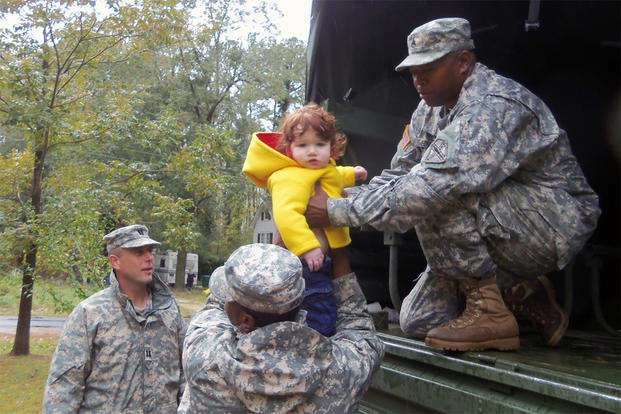Curbing military suicides among Guard and Reserve members may require a change in federal law to extend Veterans Affairs benefits to those who have never deployed or been activated, an official said Wednesday.
"Some of the members don't qualify for the VA. Some of our members don't have health insurance at all. We need to make sure that our service members have coverage," said U.S. Public Health Service Rear Adm. Joan Hunter, who leads the National Guard's psychological health program. "As we wind down the war, we're going to see more and more domestic operations and we need to make sure that our guardsmen and our reserves have parity and access to care."
Currently Guard and Reserve members only qualify for VA care if they served on federal duty. Those who served on active duty in a war zone after 1998 qualify for care for five years from the time they are discharged. Deploying on state-issued orders, even to a potentially hazardous or traumatic disaster area, does not qualify Guard and Reserve members for VA assistance, including mental health care, according to VA policy.
Hunter, who made the remarks at the annual Military Officers Association of America's Warrior Family Symposium in Washington, D.C., said Guard and Reserve members who do have health insurance are worried about how using it to get care could impact their civilian jobs.
"What are we going to do to support them as a special population?" she said. "There are loops and hoops that we have to go through in order to get them the care they need at the level they need."
That Guard and Reservists face so many VA restrictions surprised VA Secretary Robert McDonald when he first read the law, he told Military.com in an interview. But changing the policy could be an uphill battle, and isn't one he plans to personally ask lawmakers to tackle.
"We'd have to change the law, and increase funding and give us some time to build the capability," he said. "I think it's up to a member of Congress to work on legislation."
--Amy Bushatz can be reached at amy.bushatz@military.com.





























